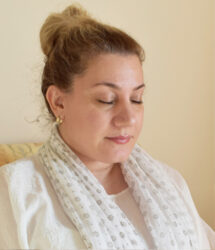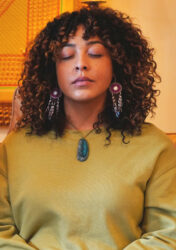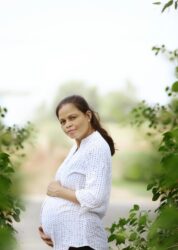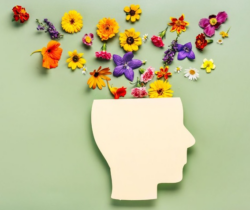Native American Women Writers: An Interview with Hertha D. Sweet Wong, PhD
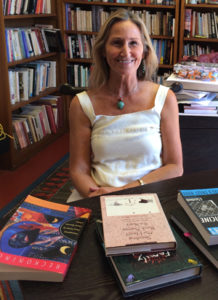
Hertha D. Sweet Wong, PhD, has been instrumental in bringing the voices of Native American women to mainstream attention. When she was a graduate student studying literature in the 1980s, she made a pivotal decision to follow her passion and delve into the unknown field of Native American autobiography. Now an associate professor of literature and assistant chair of the English Department at the University of California, Berkeley, she talks about the Native American women who have inspired her and how the Transcendental Meditation technique has influenced her writing.
Linda Egenes: How did practicing the Transcendental Meditation technique affect your writing and personal life?
Hertha Sweet Wong: When I started the TM technique in 1972, it felt like the most natural thing ever, so deeply right. It rang true.
I meditated regularly for over 20 years. Then I went through a phase, as a tenure-track professor and mom with two young kids, when I didn’t meditate every day.
In the last few years I have returned to twice-daily TM practice, and it has been a great relief. It makes a huge difference in my personal life and in my writing.
LE: Can you give an example of this?
HSW: Sometimes when you’re writing you hit the stuck spots and you just don’t know which path to take. And after meditation, an idea will come up and it’s resolved. Or it doesn’t come up as a conscious thought—but when I sit down to write, something has cleared and I’m ready to move on. It’s not even an issue any more, it gets sorted out.
And I see this happening more when I keep a good writing routine as well as a good meditation routine. In my dreams sometimes I can see whole paragraphs and pages shifting around. Sometimes I get the syntax down, and it’s a perfect sentence. And other times, I see conceptual structures. I wake up and what has come to me in my dreams is good. It has never been wrong when it comes to me like that.
I love when that happens. It feels magical, like a gift, because it’s not about me consciously trying to pin down that particular word or that particular sentence. When this happens, writing becomes a real joy. These are experiences that I cherish.
Linda Egenes: With your first book, Sending My Heart Back Across the Years: Tradition and Innovation in Native American Autobiography, published in 1992, you were one of the first to write about Native American autobiography. What drew you to this study?
Hertha Sweet Wong: I am interested in archival research, in finding works that haven’t necessarily been published before. I didn’t exactly go looking for them but one thing led to another.
LE: You mentioned that, in part, this book was a response to the academic view that autobiography is a Western literary form. Can you explain that?
HSW: Autobiography as a literary study is really, really young. It was just coming into being in the late 50s and 60s and didn’t emerge as a university literary course until the 80s. Earlier autobiography was considered a kind of history, or was folded into the biography genre.
So the initial literary study in the 1980s was focused on its origins as a Western European literary form. Many key people were saying that so-called “primitive” people couldn’t have created anything like autobiography because they had no sense of self and they had no writing. And therefore self (auto)-life (bio) writing—autobiographical writing—did not exist in those cultures.
I was dumbfounded by this. I thought every culture, whether literate or pre-literate, has some conception of its self, of personhood or being. Just because Western scholars didn’t understand this form of autobiography, it doesn’t mean it didn’t exist. So I was driven by that thought, to uncover Native American autobiography.
LE: Were you studying Native American literature at the time?
HSW: At the University of Iowa in the 1980s, where I did my doctorate in literature, I had taken one Native American literature course. So these two interests [archival research and Native American studies] came together at one point.
However, I was advised not to write a dissertation about Native American literature because, they said, I’d never get a job. At this point there were no Native American Studies programs or departments in the country. I was advised to go into composition theory, because that was where the jobs were.
I had studied composition theory and found it interesting and relevant, but it was not my passion. So I finally decided to ignore this advice and go with what I was really interested in. I think that has made a huge difference in my career.
LE: Yes, in hindsight Native American studies became an entryway for you, and with your books you became instrumental in the renaissance of Native American autobiography.
HSW: Some people have resisted calling it a “renaissance” because Native people were always writing. But they weren’t always getting published. That was the difference.
Yet it was a renaissance—in the sense of the visibility of the Native writers and voices—when the work of Leslie Marmon Silko, Linda Hogan, Simon Ortiz and later, Louise Erdrich, began to emerge. I think it especially became known that way as a result of M. Scott Momady being awarded the Pulitzer Prize for House Made of Dawn in 1969.
LE: Your last work, Reckonings: Contemporary Short Fiction by Native American Women, which was published in 2008, is a groundbreaking anthology of short fiction by contemporary Native American women. Do you feel you will do more work focused on women?
HSW: The thought keeps bubbling to the surface. I am thinking to perhaps do a brief book on Linda Hogan, author of novels, poetry and autobiography, who was featured in Reckonings. She is also someone from my tribe, although I want to clarify that I am not tribally enrolled. She is a gentle, beautiful spirit. The idea is just beginning to percolate, and I am ready for a new project.
LE: How does your background as a Native American woman influence your research and writing?
HSW: I feel conflicted. I am mixed and not tribally enrolled so am not a member of a native nation/tribe. I am very aware that my experiences are very different from someone who grows up in an urban Native community, or who grows up on a reservation. I am not anybody to speak on behalf of Native people or Native nations or anything like that.
Yet my experience as a mixed-race Native woman is quite common. What I envision is an expansion of inclusivity to reflect different experiences of being indigenous in the contemporary world.
LE: What was your experience growing up as a mixed-race Native woman in Riverside, CA?
HSW: My mother was Native American, and she looked very native, with long dark hair. But she never talked about her background until I was in my 20s, and then her story came out, that she was afraid to talk about it, because her mother, my grandmother, had been called a “dirty Indian” even in the family.
While my mother did not talk about being Native, she raised me with a sense of the interrelatedness of consciousness, a connectedness to nature and all living things. She taught me how to talk to plants and to access dreams, for instance. It was never named “Native knowledge” by her. We were just a family. Yet I later found these things in my research and it felt so familiar, it was like coming home in a way. I have never lost my sense of the sacred and the sense of somehow being able to experience it.
Currently, Dr. Wong is revising a book manuscript on visual autobiography, tentatively entitled, Look Here! Readings of Contemporary American Interart Autobiography, that considers everything from illustrated memoirs to artists’ books, from photo-biographies to storyquilts, from graphic memoir to conceptual, site-specific art installations, all addressing the possibilities of identity and self-narration.
Books by Hertha D. Sweet Wong, PhD
Reckonings: Contemporary Short Fiction by Native American Women (Oxford University Press, 2008), co-edited with Jana Sequoya Magdaleno and Lauren Stuart Muller
Louise Erdrich’s “Love Medicine”: A Casebook (Oxford University Press, 2000). Editor.
Family of Earth and Sky: Indigenous Tales of Nature from around the World (Beacon, 1994), co-edited with John Elder
Sending My Heart Back Across the Years: Tradition and Innovation in Native American Autobiography (Oxford University Press, 1992)
About the Author
Linda Egenes writes about green and healthy living and is the author of six books, including The Ramayana: A New Retelling of Valmiki’s Ancient Epic—Complete and Comprehensive, co-authored with Kumuda Reddy, M.D.
More Posts by Linda
- Tired and Burned Out? Transcendental Meditation Can Help: An Interview with Dr. Nancy Lonsdorf, MD
- Worried About the Future? Six Ways to Calm Your Anxiety
- What Do You Carry in Your Self-Care Tool Kit?
- Five Strategies for Family Caregivers
- From the Streets to College in Four Months: The Communiversity of South Africa Empowers Underserved Youth in Cape Town

